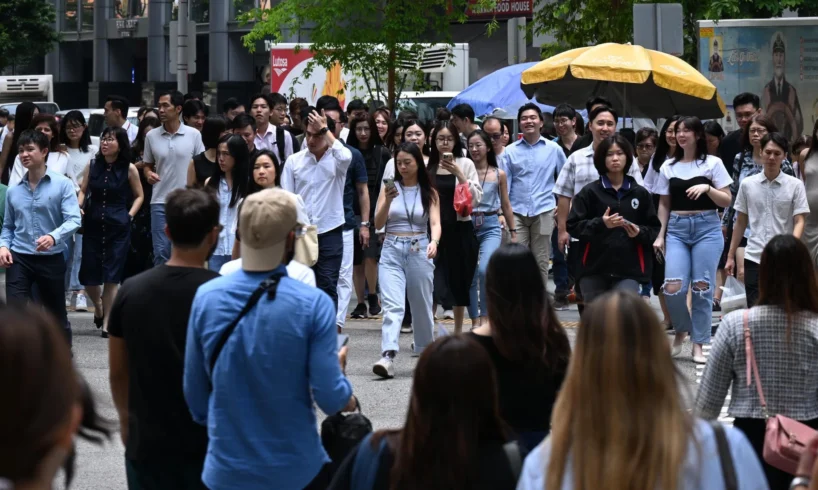
Companies are grappling with cost pressures while talent is demanding higher compensation
[SINGAPORE] There is a growing mismatch in salary expectations between Singapore employers and jobseekers heading into 2026, as companies grapple with cost pressures while talent demands higher compensation to match inflation and skill scarcity.
According to the Robert Walters Salary Survey 2026, while 27 per cent of employers are willing to offer pay rises above 10 per cent to new hires, 83 per cent of professionals changing jobs expect an increment surpassing that figure.
Furthermore, nearly a quarter (23 per cent) of job movers are likely to request a salary jump of more than 20 per cent.
This expectation gap comes at a time of economic uncertainty, when firms are exercising caution in wage management, Robert Walters said.
“On the talent front, candidates are expecting job offers to go beyond higher pay, and include areas such as flexibility, learning opportunities and purpose,” the survey statement read.
On the flip side, employers cite a lack of candidates with the right skills and “salary and benefit expectations being too high” as their top challenges in sourcing staff.
Robert Walters predicts that 2026 will herald moderate overall salary growth; however, this would be uneven across the market, with greater increments in artificial intelligence (AI) and cybersecurity.
Outlook for employers and talent
In the coming year, 37 per cent of employers plan to increase their headcount, with most of them looking to raise it by 5 to 10 per cent.
Nearly seven in 10 employers (69 per cent) are looking to give a salary increment of at least 3 per cent in 2026 for current employees; 56 per cent are likely to give a salary increment of at least 6 per cent to new hires.
SEE ALSO
However, those seeking jobs in high-demand sectors such as AI and cybersecurity could well command premiums of up to 20 per cent.
Kirsty Poltock, country manager at Robert Walters Singapore, noted that the era of “market-wide increments” is over. She advised companies to stay flexible and tap into analytics for workforce planning.
AI and the reskilling imperative
Professionals hoping to land on the higher end of the salary bracket need to “future-proof” themselves against AI. This involves deepening domain expertise, understanding AI governance and sharpening human-centric skills like stakeholder management – the areas that automation cannot easily replace, Robert Walters suggests.
AI is moving from pilot phases to actual implementation, particularly in banking and finance.
A workforce reset is imminent; 78 per cent of all businesses expect up to half their workforce will need reskilling due to AI advancements.
Positions involving repetitive, manual tasks – such as entry-level data reporting, basic compliance checks and accounting roles involving accounts payable and accounts receivable – are deemed most at risk of displacement.
Employers are prioritising critical thinking (71 per cent), data analysis (59 per cent), and adaptability (44 per cent) to complement an AI-driven workplace.
Despite the cautious outlook, demand remains “very high” for specific technical and strategic roles across key industries.
A “skills-first” flexible workforce
To navigate headcount constraints and economic volatility, Singapore’s employment landscape is undergoing a structural shift towards contracting and skills-based hiring, the survey suggests.
Permanent headcount growth is being kept to a minimum due to cost pressures, especially in industries such as technology and transformation. Roles previously offered permanently, particularly in cloud, data, AI, and cybersecurity, are increasingly being filled by contract talent.
According to those surveyed, 55 per cent of companies plan to hire contractors in 2026.
Just over seven in 10 companies (74 per cent) hiring contractors do so for project or short-term needs. Other reasons include headcount limitations, and a “wait-to-try” attitude, Robert Walters said.
Decoding Asia newsletter: your guide to navigating Asia in a new global order. Sign up here to get Decoding Asia newsletter. Delivered to your inbox. Free.





